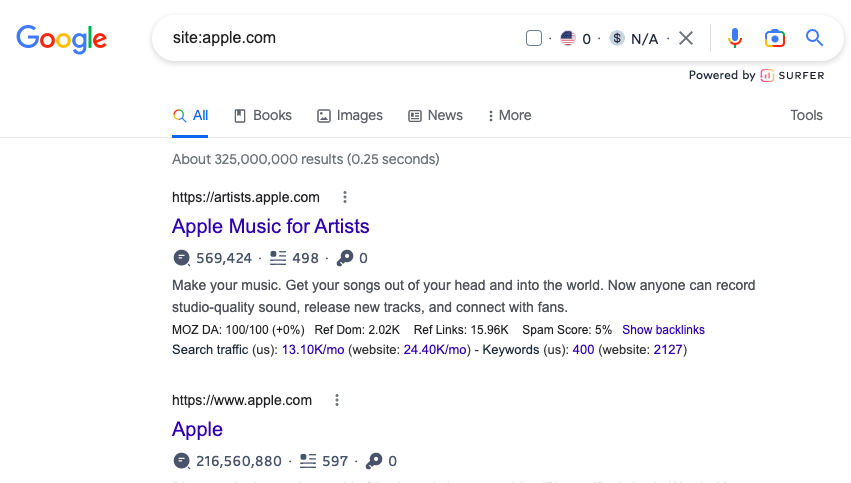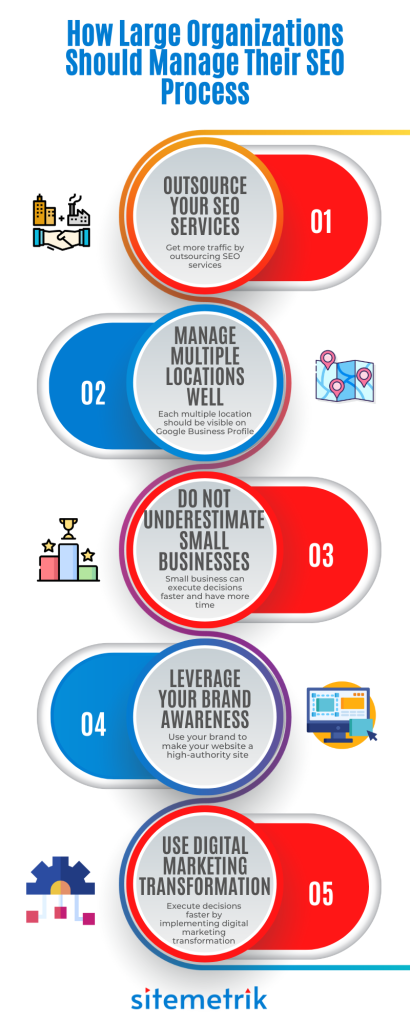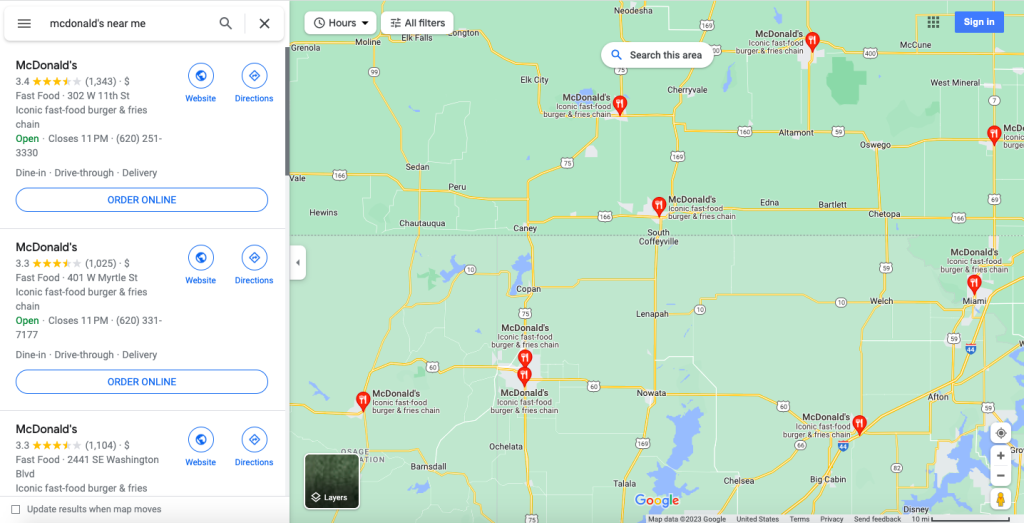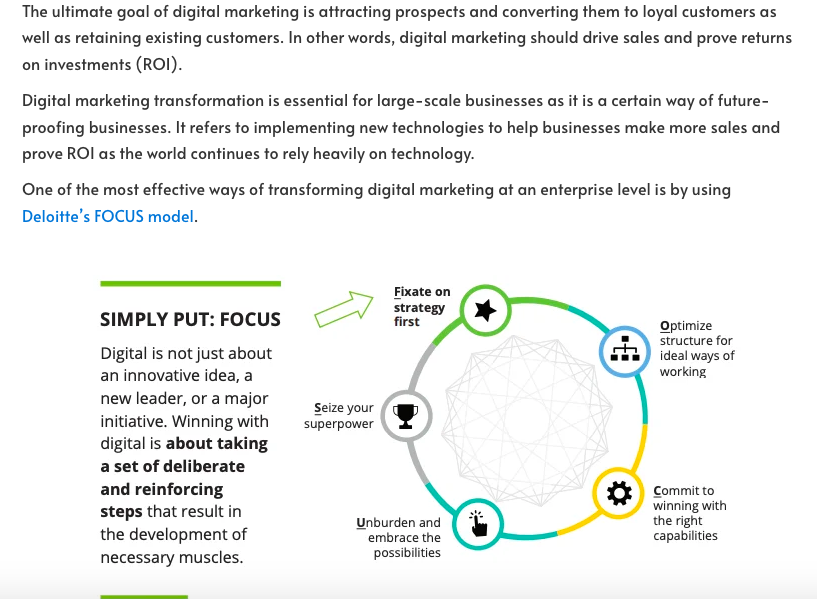How Large Organizations Should Manage Their SEO Process
It’s true that search engine results are ever-changing. Leading search engines like Google change their algorithms periodically to ensure that their users get the exact results they are searching for without a lot of hassle.
In addition, it helps ensure that leading brands remain competitive.
And that’s why large organizations should know how to manage their SEO process effectively and efficiently. One mistake that most large-scale businesses make is thinking that SEO is just a strategy.
We hate to burst their bubble but today, corporate SEO is not merely a strategy, but a necessity. Most (if not all) large-scale businesses are competing for more customers and top rankings on search engines.
That’s why we’ve taken our time to craft this guide article to help you understand exactly how you should manage your SEO process as a large-scale company.
Let’s get started!
What Makes Large-Scale SEO Different from “Normal” SEO?
The primary difference between corporate SEO and small-scale business SEO boils down to scalability and smartness. Here’s why:
Most large-scale businesses’ websites have several hundred thousand web pages, if not millions. You have to be smart enough to know which web pages you’ll prioritize for content refresh and updating.

What makes corporate SEO different from “normal” SEO
You’ll also need to know which new keywords you need to implement for new content generation. And that’s where scalability gets into the picture. When doing keyword research, you might find thousands of good keywords from which you can generate content and rank.
But it’s not logically possible to generate all that new content and still update or refresh content from other web pages. You cannot work on corporate SEO without scalability and smartness.
How Large Organizations Should Manage Their SEO Process

Check out these top 5 ways that large organizations can use to manage their SEO process:
1. Outsource Your SEO Services to a Professional Agency
Remember how large organizations need to employ scalability and smartness to get their websites on the top of Google’s first page? Most large-scale businesses are slow in implementing new SEO strategies.
Each activity needs to be proposed, reviewed, and then approved – and that is without mentioning internal power struggles and ego games.
In fact, most of them still use traditional SEO strategies to rank on Google’s SERPs, e.g.,
- Keyword/keyphrase stuffing
- Article spinning
- Cloaking
- Paid backlinks
- Too many page redirects
And you are probably thinking to yourself at this point:
“What difference will it make if we outsource our SEO services?”
Most professional SEO agencies have skilled experts who are ready to get down to working on your business’s website. They do not need to undergo any form of training on corporate SEO because it’s something they have been doing for a long time now. In addition, you get to do away with extra costs associated with training new team members how to correctly do corporate SEO.
However, outsourcing your SEO services does not mean doing away with your in-house digital marketing team (most large organizations have these in-house teams). It would be best if your in-house team worked together with a professional SEO agency that provides corporate SEO services.
Also, outsourcing SEO services to a professional agency is beneficial to large-scale companies as it gives them more resources e.g., computers, office space, etc., and time to do what they do best.
2. Manage Your Large-Scale Business’s Multiple Locations Properly
Most large-scale businesses have multiple locations. A perfect is how Mcdonald’s has multiple fast food chains.

Large-scale business with multiple locations
Optimizing local SEO using Google Business Profile is essential as it helps capture local traffic and consequently improves your business’s website visibility. In fact, recent statistics have shown that 76% of people search for products or services using their smartphones, and 28% of those searches result in a purchase. Do not underestimate the power of a Google business listing.
The best part about it all is that Google Business Profile is a free tool. So how should you go about managing multiple locations for your large-scale business?
Here’s how:
You’ll need to create a Google Business Profile account for your business’s main location first (assuming your business does not have an account). The following stage is highly dependent on how many locations your business has – if it has less than 10 locations, i.e. 9 or fewer, you’ll need to manually create and update an account for each location individually.
Since the process can become difficult for one person, you can grant access to other managers who can update business information as needed, add photos, respond to reviews, etc.
Pro tip: It would be best if you would use a general company email when opening a GBP account for these locations. That way, you’ll be able to manage the accounts easily. It would also be best if you’d consider using a shared document with your account managers to keep all your accounts’ business information up to date.
Remember, Google is most likely going to rank your locations on its listings based on the clarity of your business information.
On the other hand, if your large-scale business has ten or more locations, Google Business Profile allows you to use the bulk management tool. This tool allows you to add, verify, and manage all your business locations all at once. It saves a lot of time and you have lesser chances of making mistakes in any of the location’s accounts when setting up.
Consider reading this step-by-step guide from Google on how to use this bulk management tool.
3. Do Not Underestimate Competition from Small-Scale Businesses
Large-scale businesses do not compete with other large-scale businesses only. They also compete with small-scale businesses for customers. And that is not something that large-scale businesses should take for granted. Most small-scale businesses have enough resources and manpower to craft the best SEO strategies which will attract prospects and convert them into loyal customers.
In addition, most small-scale businesses execute decisions faster than large-scale businesses. Here’s the deal:
We understand that small-scale business SEO is not the same as large-scale SEO, and you cannot avoid the fact that small-scale businesses may rank better than your large business. Additionally, you cannot afford to be losing customers to other businesses simply because you did not implement a smart and scalable SEO strategy.
The best way to beat competition from small-scale businesses is by crafting and executing a smart and scalable SEO strategy. That’s why we strongly recommend bringing a professional SEO agency on board to work on your website’s SEO. That way, you’ll be sure that your SEO strategy is being properly executed by professionals who’ve actually done it before.
By continually establishing a solid digital presence, you’ll get to dominate your industry.
4. Leverage Your Brand Awareness
Most large-scale businesses have excellent brand awareness – their target audience prefers going to them for business transactions. Good brand awareness gives you an upper hand as a large-scale business as it helps you beat your competition (from both small-scale and large-scale competitors).
It is essential to note that your brand awareness will help you get thousands of backlinks from small-scale businesses and community forums. Ensuring that your website remains relevant to small-scale businesses, community forums, as well as other large-scale businesses is vital – it makes your website a high-authority site.
Having a high-authority site is beneficial to your SEO efforts because of the backlinks you get from other legitimate websites. Your site gets to rank higher on search engines because Google understands that your website is important through backlinks.
5. Do Away with Slow Inner Processes in Large Organizations
It’s true that most large-scale businesses have an extremely slow decision-making process, which gives smaller businesses an upper hand because they implement their decisions quickly. It’s essential to always note that there’s a lot at stake especially since things have now gone digital.
The more time you waste through slow bureaucratic decision-making processes costs you a lot of customers because people today are looking for fast and quality solutions. In addition to slow decision-making processes, large organizations also have internal power struggles and ego games which slow down processes and lower the quality of services delivered.
As such, it would be best if you’d consider streamlining processes inside your large-scale business to hasten the decision-making process. One of the best ways of implementing a streamlined process to hasten the decision-making process is through digital marketing transformation.

Put simply, digital marketing transformation is using technology to evolve your business and enhance service delivery. In other words, it is harnessing the digital enterprise to better your business and enhance service delivery.
Wrap-Up on How Large Organizations Should Manage Their SEO Process
Today, SEO is not merely a strategy but a necessity. It is a cornerstone necessity that enables you to attract prospects and convert them into loyal customers when done correctly. However, you need to know where to place your focus and that’s exactly what we’ve provided in this article.
In summary, large organizations should manage their SEO processes by:
- Outsourcing their SEO services to a professional SEO agency – it’ll help large organizations save a lot of time, money, and resources. In addition, they’ll get to achieve more in a shorter time span.
- Manage their multiple locations well using tools such as Google Business Profile to capture local traffic.
- Large organizations should not underestimate competition from small-scale businesses.
- These large organizations need to leverage their brand awareness to make their websites high-authority sites with lots of backlinks from small-scale businesses.
- Using digital marketing transformation to do away with slow inner processes.
Remember, corporate SEO is totally different from “normal” SEO. Read our comprehensive review on why established businesses should outsource their SEO services to professional agencies for more information.

Baris Coskun
Baris Coskun is 8 years experienced SEO Expert that specializes in content and technical SEO strategy creation/implementation progress for large-scale, multilingual, and international targeting websites.



![6 Tips for Franchise Businesses SEO Strategy [Improve Your Local Visibility] 8 6 TIPS FOR FRANCHISE BUSINESSES SEO STRATEGY](https://sitemetrik.com/wp-content/uploads/2022/12/66-1-300x200.png)

